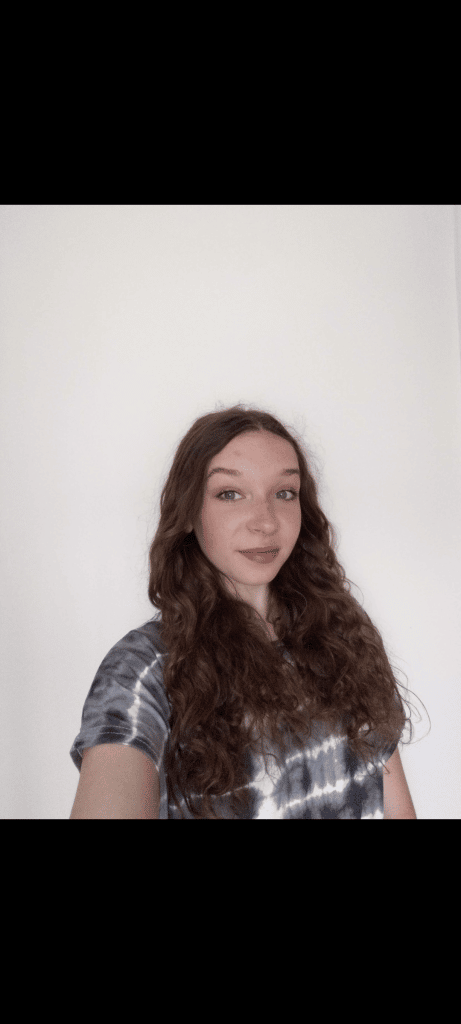
,
Abigail Booth
Student
I applied to the program after I applied to the Hull-York WP program and despite getting rejected from there I was accepted...Tell us a little bit about your background…
My brother and I were brought up by our mum in a small town called East Grinstead, which is situated directly between London and Brighton. Although it’s in quite a traditionally affluent area of South East England, the town itself has been a bit forgotten. My mum worked three jobs when I was much younger to support us and continues to work in one of those jobs now as an office administrator and cleaner. No-one in my immediate or extended family has ever been to a traditional university. I went to the state primary and secondary schools five minutes down the road from me, but when the time came to apply for A-Levels, I decided move to Central Sussex Sixth Form College. This meant I was up at 6am, at the bus stop for 7.30am, and arriving at college by 8.30am… so by first period I was pretty knackered! It was worth it though, for sure.
How did you hear about the programme and what was your experience on the programme?
My teacher – and living legend – David Towsey told my class to go and look up the UK Summer School programme in the computer room, even though he would have known that only some of us would have been eligible. So I went and read the eligibility criteria and I was like… this is me. I thought, David’s got my back, why not give it a shot?
I decided to apply to Bristol, and I remember arriving there and thinking, what am I doing here? Walking into this Hogwarts-style university felt like an elaborate ruse. Then this man called Doug Jennings, who ran the Summer School, stood up on a bench and delivered this amazing speech about how inspired and motivated he was by us being there and how passionate he was about us having the best week possible. He understood how we were feeling and I immediately thought: this man can guide us through this experience.
The week was academically challenging and the sheer size of lecture theatres was terrifying, but I loved it all so much that I applied to Bristol.
How did your career develop after the programme?
When I arrived at Bristol to study Biochemistry with Study in Industry, I sought out Doug as quickly as I could and signed up to become a student ambassador. I spent two years as a mentor on the Sutton Trust Summer Schools and other schemes and then another two years as a lead mentor on the Summer Schools. I absolutely loved it. I had this unspoken understanding of the young people on the programmes because I’d been in the exact same position.
For example, one of my mentees got into Bristol and applied to become a mentor herself. When I asked her why, she said, “because I met you. You made me feel so comfortable and gave me a whole other layer of self-belief. I thought, Hayley’s done it, why can’t I?”. It was like we were building a legacy: we wanted to ensure that the next generation of student scientists, artists and novelists had the same brilliant experience on the programme as we did.
After Bristol I moved to Cardiff and spent four years working on my PhD in Neuropsychiatric Medicine. I was working with young people with a rare genetic syndrome called 22q11.2DS, which is like a postcode for your genome. I went around the UK doing sleep studies to see if you could improve outcomes for these young people and their families. To be brutally honest, I didn’t enjoy it as much as I thought I would. I was able to do a lot of public engagement work, though, which made me realise how much I loved speaking to people from all different backgrounds. Plus, I became the first doctor in my family, which is pretty cool!
I’m now working on the other side of academia at UKRI BBSRC, a research funding council. We are a non-departmental Government body who fund biotech and biological science research, so I talk to businesses and academics and collaborate with individuals who are applying for funding.
What are your ambitions for the future?
Since the age of 17, when I went on the Summer School, one thing that’s been consistent in my life has been my passion for social mobility and education. I’d done lots of work in these areas, but always thought of it as something I do on top of my academia. When I was nominated for a Social Mobility Award for Mentor of the year by Villiers Park, I realised I want to work in education reform. I want to work in a role where I can hold government to account and work on the strategy of how we can make a change.
Any advice for future students thinking of apply to a Sutton Trust programme?
Fake it till you make it. I genuinely live by this mantra. Applying for a Sutton Trust programme is a big step, but honestly, taking it shows that you have the determination and passion that means you will make it. Once you’ve taken that first step and applied, the next steps you take will just get easier and easier. Then, as my mum always says, “the world is your oyster”.